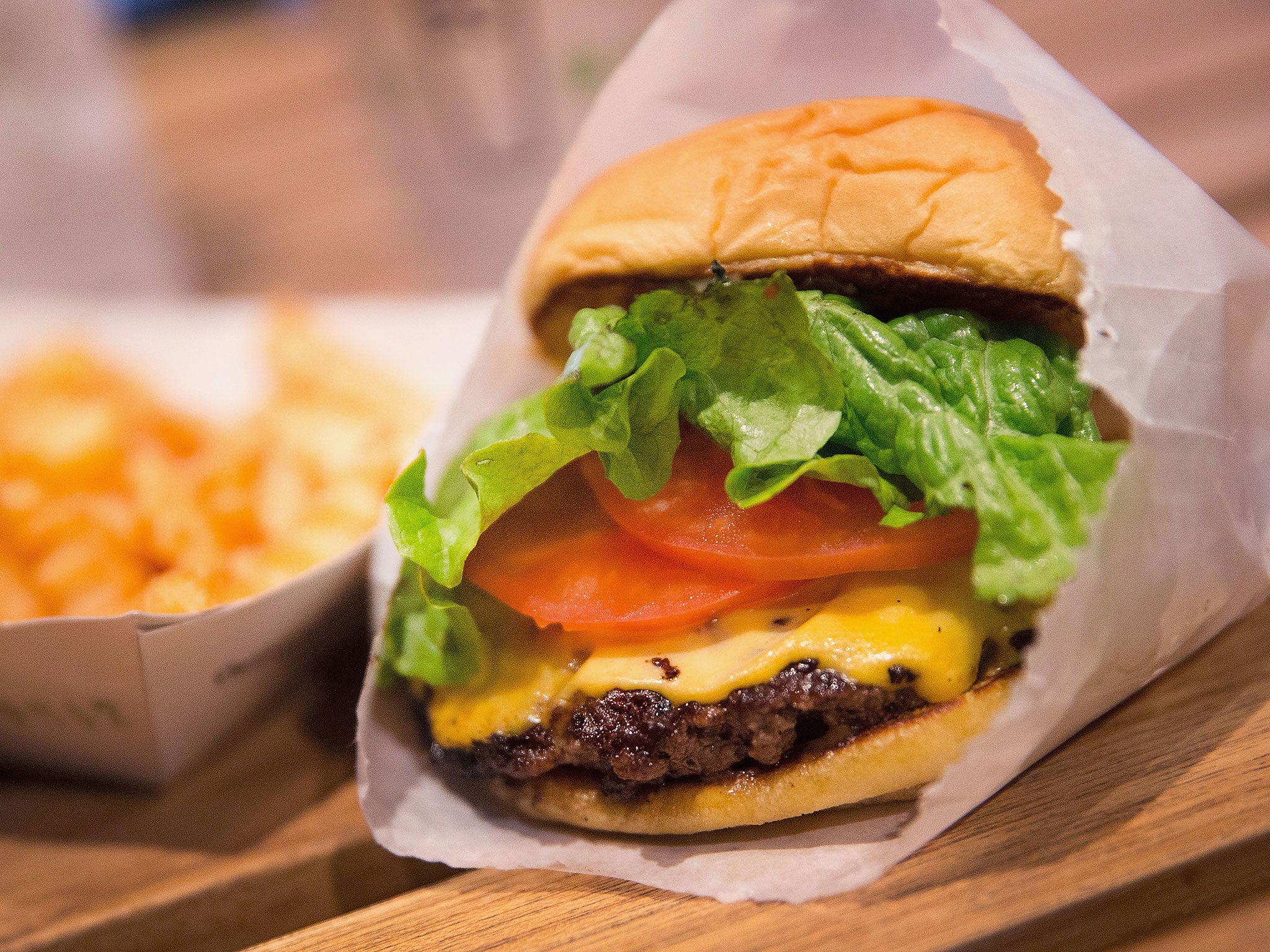A single cheeseburger can trigger changes in body linked to diabetes and fatty liver disease, study warns
Fatty food can reduce sensitivity to insulin and raise levels of fats linked to heart disease

Your support helps us to tell the story
From reproductive rights to climate change to Big Tech, The Independent is on the ground when the story is developing. Whether it's investigating the financials of Elon Musk's pro-Trump PAC or producing our latest documentary, 'The A Word', which shines a light on the American women fighting for reproductive rights, we know how important it is to parse out the facts from the messaging.
At such a critical moment in US history, we need reporters on the ground. Your donation allows us to keep sending journalists to speak to both sides of the story.
The Independent is trusted by Americans across the entire political spectrum. And unlike many other quality news outlets, we choose not to lock Americans out of our reporting and analysis with paywalls. We believe quality journalism should be available to everyone, paid for by those who can afford it.
Your support makes all the difference.Just one fatty meal, such as a cheeseburger and chips, is enough to alter the body’s metabolism and trigger changes associated with liver disease and diabetes, researchers have found.
In bad news for anyone who enjoys the occasional greasy overindulgence, scientists have warned that consuming a big helping of rich, fatty food can reduce sensitivity to insulin and immediately raise levels of fats linked to heart disease.
While the bodies of those who keep fit may be able to recover from a fried chicken or pizza blow-out, lasting damage is likely to take place if it becomes a regular occurrence.
Researchers at the German Diabetes Centre in Dusseldorf, Germany, gave 14 lean and healthy men aged 20 to 40 either given a vanilla-flavoured palm oil drink or plain water.
The palm oil drink contained a similar amount of saturated fat as an eight-slice pepperoni pizza or a regular cheeseburger served with a large portion of chips.
Tests showed that consuming the palm oil resulted in an immediate increase in fat accumulation and reduced sensitivity to insulin, the vital hormone that regulates blood sugar.
It also raised levels of triglycerides – a type of fat linked to heart disease - altered liver function and led to changes in gene activity associated with fatty liver disease.
A single high-fat meal “would probably be sufficient to induce transient insulin resistance and impair hepatic [liver] metabolism,“ wrote the team in the Journal of Clinical Investigation.
“We presume that lean, healthy individuals are able to compensate adequately for excessive intake of saturated fatty acids, however, sustained and repeated exposure to such nutrients will ultimately lead to chronic insulin resistance, and NAFLD (non-alcoholic fatty liver disease).”
Palm oil was found to reduce insulin sensitivity by 25 per cent in the whole body, while the mechanism that generates glucose sugar from non-carbohydrate foods became 70 per cent more active.
Levels of glucagon, a hormone that stops blood sugar falling, were also raised. Similar effects were seen in mice given the same palm oil treatment.
Emily Burns, research communications manager at Diabetes UK, recommended following a balanced diet while further research took place.
“We know that eating too much saturated fat might be linked to insulin resistance and this study gives us some insight into what's actually happening inside the body,” said Dr Burns.
“While this study suggests that fat has a real impact on the liver, we need to be careful how we interpret the results.
“The research didn't involve any women and didn't compare the effects of saturated fat to other foods like protein or unsaturated fat.”
Additional reporting from Press Association
Join our commenting forum
Join thought-provoking conversations, follow other Independent readers and see their replies
Comments